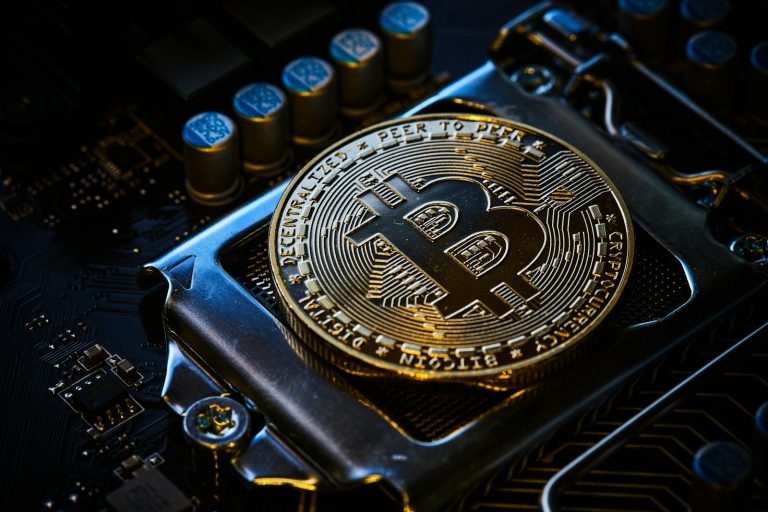Hello there! If you’ve ever heard about Bitcoin, Ether, or “crypto” and wondered what it’s all about, you’re in the right place. Today, we’re going to talk about some recent events in the crypto market, but don’t worry—we’ll explain everything in very simple language. By the end of this article, you’ll not only understand what’s happening, but you’ll also get a basic idea of how to think about investing in crypto.
What Happened in the Crypto Market Last Week?
Let’s start with a big event that happened over the weekend of October 18, 2025. A single tweet caused huge chaos in the crypto world.
Yes, you read that right—a tweet. This tweet came from U.S. President Donald Trump, who threatened 100% tariffs on Chinese tech imports. A tariff is basically a tax on goods coming from another country. When governments make announcements like this, it can affect the stock market—and as we’ve seen, it can affect crypto too.
This tweet triggered one of the largest single-day liquidation events in crypto history. In simpler terms, a “liquidation event” is when a lot of people sell their crypto very quickly, usually because prices are dropping, and they want to avoid bigger losses. On that day, nearly $800 billion in total market value disappeared in just 24 hours!
Imagine it like a giant digital vague washing away almost a trillion dollars. That’s huge!
Comment Crypto Prices Reacted
After the initial shock, the market tried to recover. Bitcoin, the most famous crypto-monnaie, bounced back to around $115,000, but then it fell again to about $108,000 by Friday. Ether, another major crypto-monnaie, dropped from $4,200 to below $4,000.
Even though prices were dropping, Bitcoin actually seemed stronger compared to Ether. This may indicate that investors still see Bitcoin as a safer option during uncertain times. Think of Bitcoin like digital gold—it’s often used as a hedge against volatility, which is a fancy word for big price swings.
Retail vs. Institutional Investors
One interesting thing about this event is that it highlighted the difference between two types of investors: retail et institutional.
- Retail investors are everyday people like you and me. They usually buy crypto using exchanges and often react emotionally to market swings.
- Institutional investors are companies, hedge funds, or even governments that invest large sums of money. They often have strategies to weather market storms.
During this flash crash, institutional investors were still buying. Spot ETFs (Exchange-Traded Funds) continued seeing inflows of $2.7 billion for Bitcoin et $488 million for Ether. Even some digital asset treasury companies were adding crypto to their balance sheets during this turbulent period.
What this tells us is that while the market can be scary for beginners, some experienced investors saw this as an opportunity to buy more at lower prices.
Macro Headwinds
Now, let’s talk about the bigger picture. “Macro” simply refers to the overall economy, and “headwinds” are challenges or obstacles. So, macro headwinds are big economic problems that affect markets, including crypto.
Currently, the U.S. is facing a government shutdown, meaning federal workers are being furloughed, or temporarily laid off. This situation has caused key economic data to stop being released. Economic reports are important because they help investors understand the health of the economy. Without this information, markets—both traditional and crypto—can become more volatile.
Pourquoi Crypto Can Be Risky
Si vous êtes novice en matière de crypto, it’s important to understand why prices can swing so dramatically. Unlike traditional stocks or real estate, crypto is still a relatively new market. Its value is influenced by a lot of factors:
- News and announcements: Like the tariff tweet, even a single message can move the market.
- Investor behavior: If many people panic and sell, prices drop quickly.
- Government regulations: New laws or restrictions can have a big impact.
- Adoption and technology: Positive news, like a company accepting crypto payments, can push prices up.
Because of these factors, crypto can be very volatile. This is why beginners need to approach investing carefully.
What’s the Difference Between Bitcoin and Ether?
Before we go further, let’s briefly explain the two main cryptocurrencies mentioned: Bitcoin (BTC) et Ether (ETH).
- Bitcoin (BTC): Created in 2009, Bitcoin is like digital gold. People often buy it as a store of value. Its supply is limited, which means there will only ever be 21 million Bitcoins. This scarcity can make it a safer option during volatile times.
- Ether (ETH): Ether is the crypto-monnaie used on the Ethereum blockchain. It powers a network where people can create decentralized apps (DApps) and smart contracts. While Ether can also be an investment, it’s often seen as more experimental compared to Bitcoin.
In the recent crash, Bitcoin held its value better than Ether, showing that investors may trust it more during market stress.
What Are ETFs and Why Are They Important?
You might have noticed the term ETF. This stands for Exchange-Traded Fund. Think of it as a basket of assets that you can buy on the stock market, but in this case, it’s for crypto.
When investors buy into a Bitcoin or Ether ETF, they’re basically saying, “I want exposure to crypto without holding it directly.” ETFs are important because they show how much institutional money is flowing into crypto. During the recent crash, ETFs continued seeing huge inflows, which tells us that big investors were still confident in the long-term value of Bitcoin and Ether.
Should Beginners Invest in Crypto?
Si vous êtes novice en matière de crypto, you might be asking, “Should I jump in?” Here’s some advice:
- Start small: Only invest money you can afford to lose. Crypto is very volatile.
- Do your research: Learn about different cryptocurrencies, how they work, and what problems they aim to solve.
- Have a long-term perspective: Crypto prices can swing wildly in the short term. Consider holding for months or years instead of days.
- Diversify: Don’t put all your money in one coin. Consider spreading your investments across multiple assets.
- Use reputable platforms: Make sure to buy crypto from trustworthy exchanges and store it securely.
Learning From Market Events
Even if you’re not ready to invest yet, observing market events can teach you a lot. The recent flash crash shows us:
- Crypto can be extremely sensitive to news.
- Institutional investors often behave differently than retail investors.
- Crashes can create opportunities for those prepared to buy at lower prices.
Understanding these dynamics can help you make smarter decisions when you do start investing.
A Simple Analogy
Let’s make this even simpler. Imagine the crypto market as a sea:
- The waves represent price changes.
- Big waves, like the $800 billion drop, can scare smaller boats (retail investors).
- Larger ships (institutional investors) are built to handle storms—they can even use the waves to their advantage.
If you’re in a small boat, it’s wise to watch the waves, understand the currents, and be prepared for rough weather before you set sail.
How to Follow Crypto News
Since crypto reacts quickly to news, staying informed is important. Here are some tips for beginners:
- Official sources: Follow announcements from government regulators or major crypto companies.
- Reputable crypto news sites: CoinDesk, CoinTelegraph, and Crypto.com are good examples.
- Social media with caution: Platforms like Twitter can be informative but also misleading. Always double-check information.
- Newsletters: Nombreux crypto newsletters explain market events in simple language for beginners.
Key Takeaways
Let’s summarize what we learned from the recent events and crypto basics:
- A single tweet can trigger massive market swings.
- Bitcoin and Ether react differently; Bitcoin is often seen as a safer crypto.
- Institutional investors may buy during crashes, while retail investors often panic sell.
- ETFs are a way to invest in crypto indirectly and show institutional confidence.
- Macro-economic events, like government shutdowns, can add uncertainty to the market.
- Beginners should invest carefully, start small, and focus on learning.
Pourquoi Crypto Can Be Exciting
Despite the risks, many people are excited about crypto. Why?
- Potential for high returns: Some early investors have made huge profits.
- Decentralization: Unlike traditional money, crypto is not controlled by any single government or bank.
- Innovation: Cryptocurrencies and blockchain technology are creating new ways to handle finance, contracts, and even art.
But remember, with high potential rewards comes high risk. That’s why education and cautious investing are essential.
How to Take the First Step
If you feel ready to explore crypto:
- Choose a reputable exchange: Coinbase, Binance, or Kraken are popular options.
- Create an account and verify it: You’ll need to provide some personal info.
- Start with a small investment: Maybe $50–$100 to get a feel for buying and selling.
- Consider a crypto wallet: This is where you store your crypto securely. Hardware wallets are safest.
- Track the market: Learn how prices move and try not to panic during swings.
Réflexions finales
Crypto can seem complicated, especially when the news talks about billions of dollars vanishing in a day. But if you break it down step by step, it becomes much more understandable.
The recent flash crash is a perfect example of how volatile this market can be, but also how experienced investors see opportunities where beginners might see panic.
By starting small, learning the basics, and watching how the market reacts to news, you can build confidence in your crypto journey. Remember, investing in crypto is a marathon, not a sprint. Take your time, stay informed, and always invest responsibly.
So whether you’re curious about Bitcoin, Ether, or just crypto in general, you’ve taken your first step by learning more. Keep reading, keep asking questions, and when the time is right, you might even dip your toes into the market yourself.











